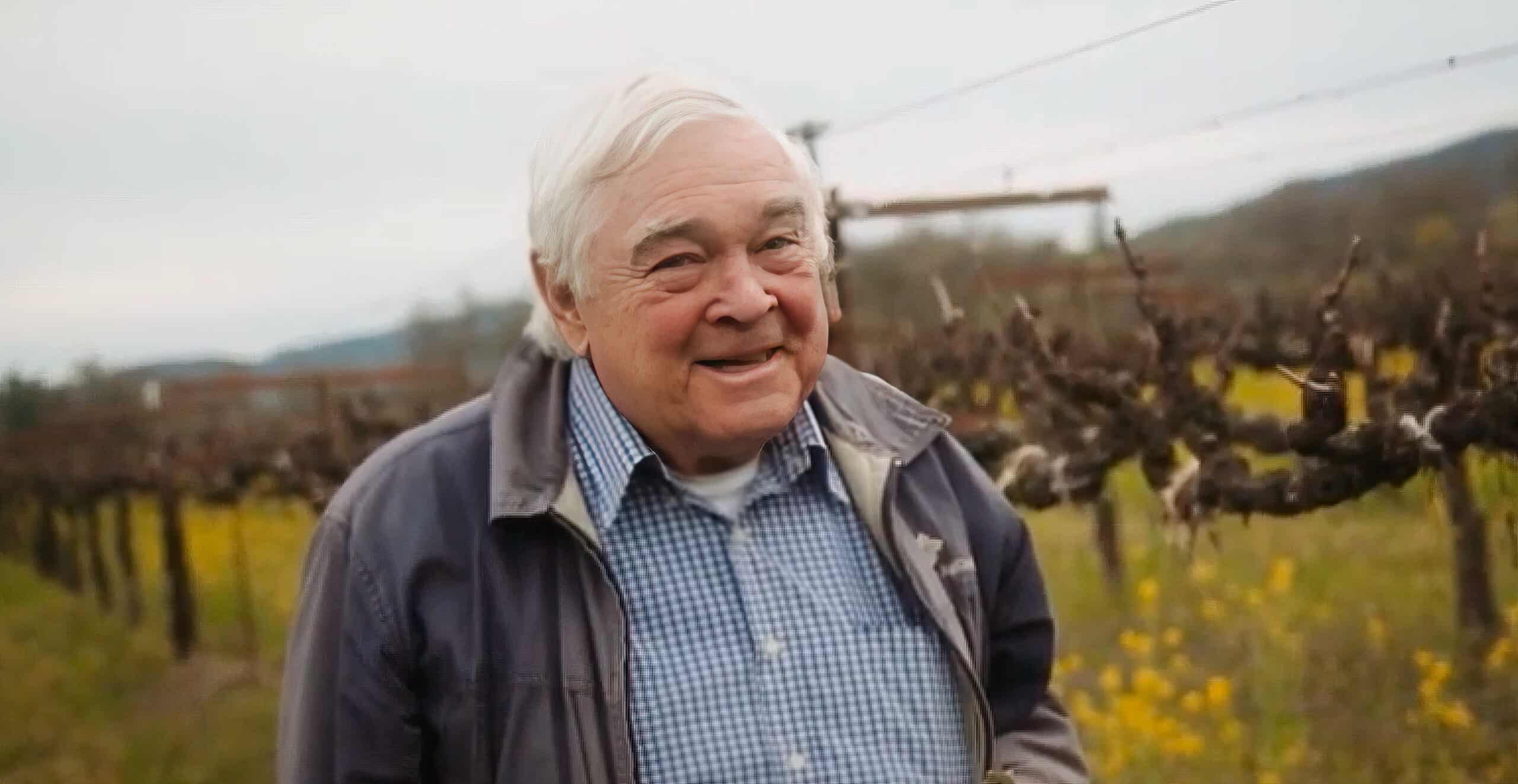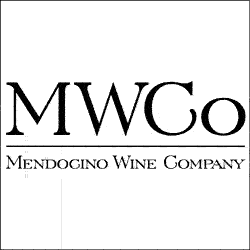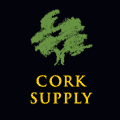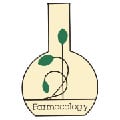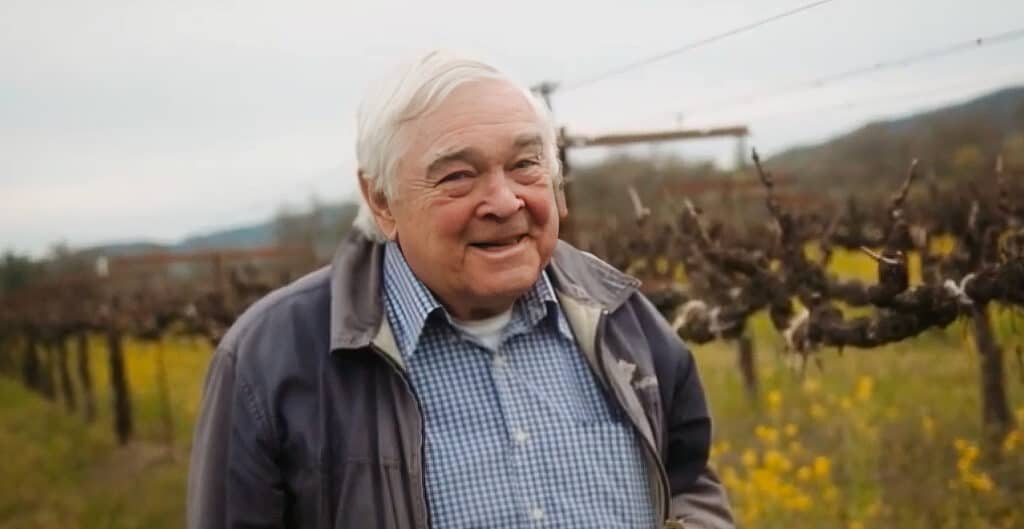
Guinness McFadden, founder and owner of Blue Quail Wines and McFadden Farm in Mendocino County’s Potter Valley, is a pioneer in organic wine growing and farming.
McFadden began farming 50 years ago when he purchased an old farm in Potter Valley. “I didn’t know a thing about farming. I was trying to find a place to hide from the war after I left the Navy,” he recalls. Little did he know his decision to settle in Mendocino County would lead to a lifelong career in organic wine growing and farming.
McFadden has experienced life in and out of the military. “I had a nine-year career in the Navy. I was in combat for a year in the river forces in Vietnam. And we were off Cuba during the missile crisis, on a destroyer. So quitting was a hard decision to make, but I made it.“
He returned to the US with a new perspective on life. “I came back, and I decided that I was going to have fun with my life, and I was going to try to do what I wanted,” he says. “And I wanted to farm, and I wanted to make wine.”
As a pioneer in organic farming, McFadden adopted these practices long before they became popular. “Don’t use the word sustainable, please. Sustainable is a word that cannot ever be associated with me. It doesn’t mean anything.”
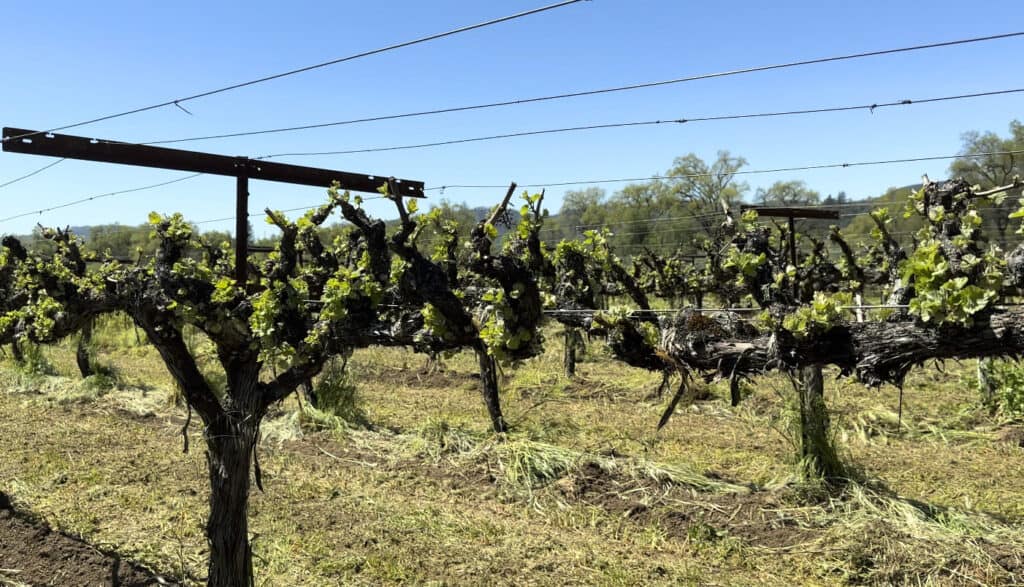
Where it all started
“I started out organic because it was the thing to do,” he explains. As his business grew, he continued to farm organically because of the financial benefits and genuine love and respect for the land.
What’s it like to be a winegrower in Mendocino County? Guinness says, “Unlike Napa and Sonoma, Mendocino County is down-to-earth and not corporate. And not so precious, right? Like Saint Helena has become. And Healdsburg is becoming. No way can Ukiah be called precious.”
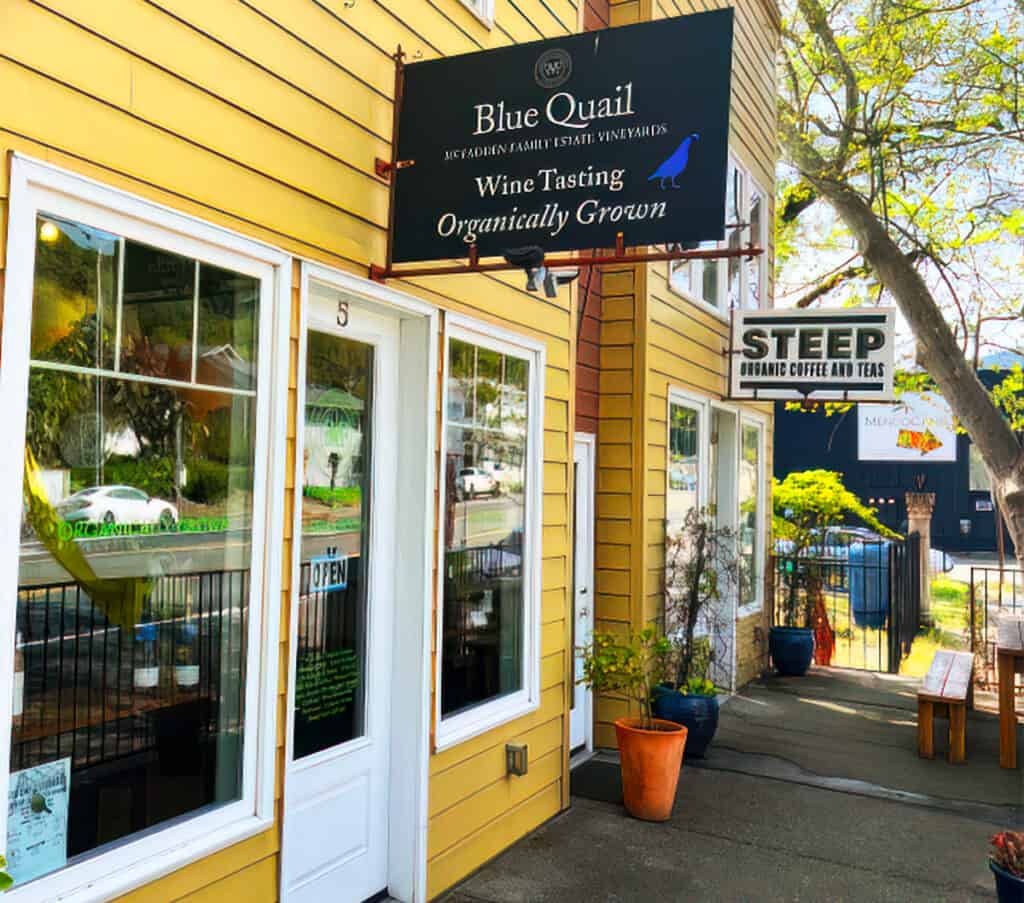
What’s the most challenging part of the job? “Selling the wine is the most challenging by far. If you’re in a good place that grows high-quality grapes and have a good winemaker who will do justice to those grapes, you can do OK. We have a beautiful tasting room in Hopland, a loyal wine club, and great distributors.” Winemaker Virginia Usher makes sauvignon blanc, gewürztraminer, dry riesling, pinot gris, chardonnay, zinfandel, Fontaine dry rose, and a couple of sparkling cuvees. “Virginia is a hell of a winemaker!” says Guinness.
Guinness’ favorite wine is sauvignon blanc. They grow a lot of sauvignon blanc and use a modified Geneva double curtain for trellising. “it’s a quadrilateral, and it has a two-foot cross arm in the bottom and then goes up 40 inches. And what it does is when the growth of these vines gets up past this wire, we’ll take that inner wire and move so we wind up with a V shape, and it gives great sun. I don’t know anybody else who does it.”
Then there’s pinot noir. He’s not a fan of pinot noir. Guinness says it’s tough to grow and finicky.
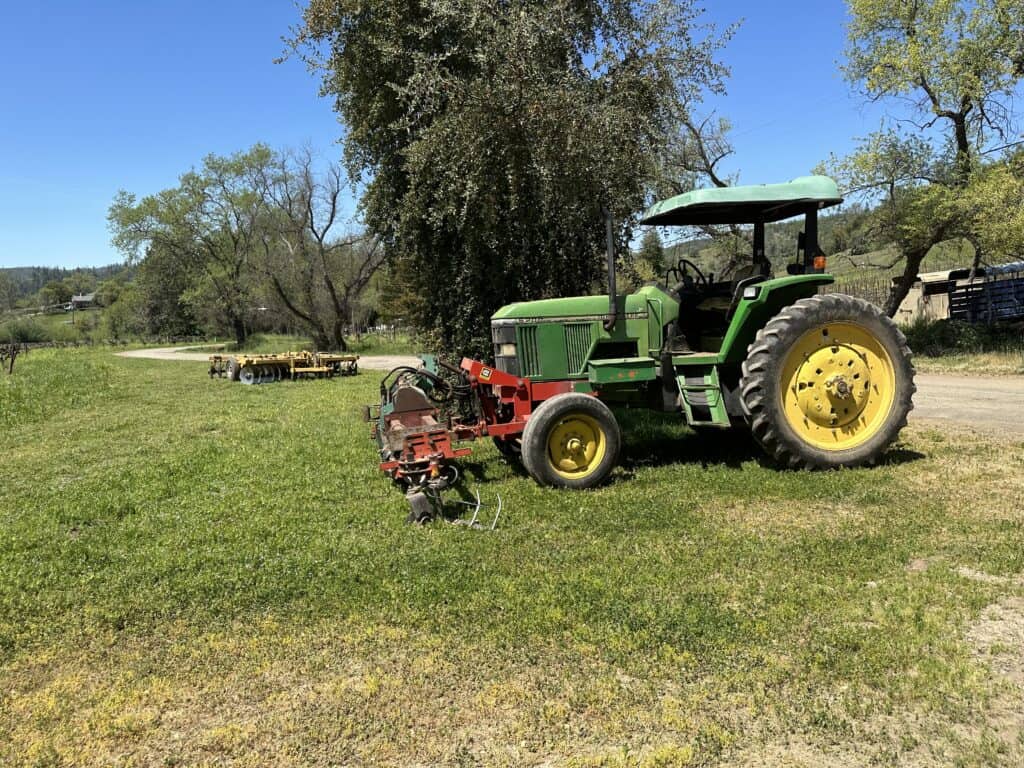
Don’t forget the herbs
“We started growing herbs because we grew herbs for our kitchen garden. And the daily temperature difference means it could be 95 at 4:00 in the afternoon. The following day at six, it could be 45. That keeps the acids in grapes high, which is a hallmark of North Coast grapes. It also keeps essential oils in the herbs. So this is a great spot to grow herbs. “
McFadden faced numerous challenges as an organic farmer, including dealing with droughts, pests, and an ever-changing climate. And bears in the zinfandel vineyard. “The drought had a really bad effect on us,” he shares. Despite these obstacles, McFadden remains steadfast in his commitment to organic farming and has adapted his techniques to the changing environment.
He is also passionate about sharing knowledge and mentoring the next generation of winemakers. “I’ve started selling to a lot of young winemakers, very earnest,” McFadden says. “And they give me enthusiasm just by being around them.”
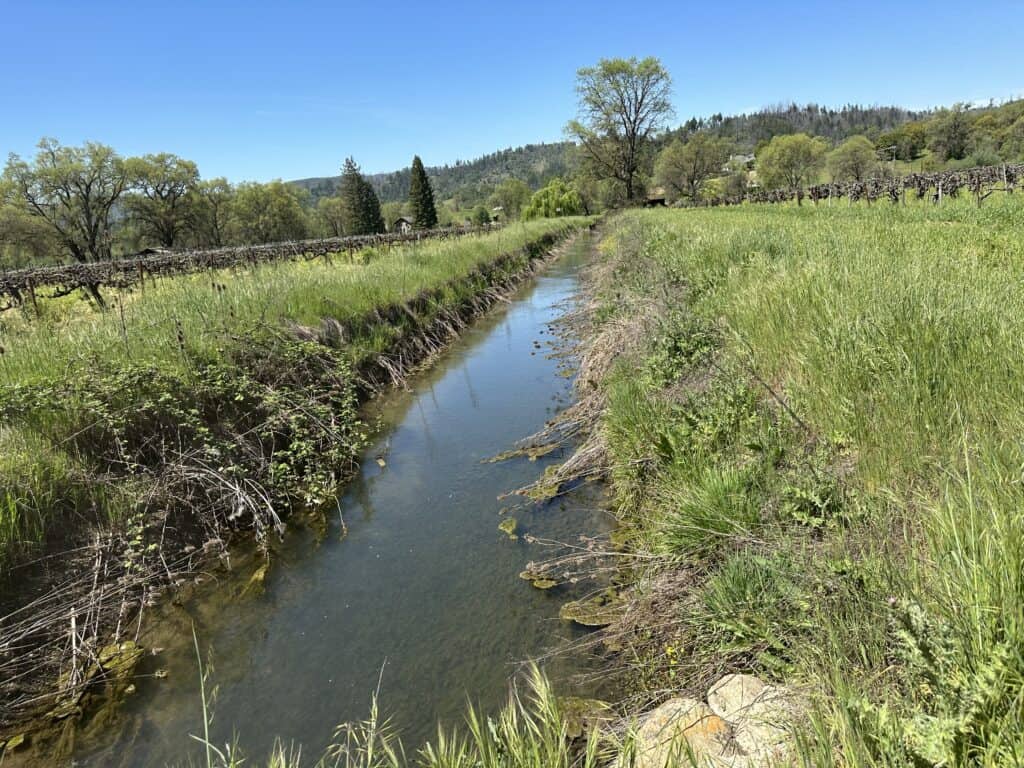
This is California, so water is a big deal
McFadden gets his irrigation water from the Potter Valley Project, which is also relied upon for water by hundreds of thousands of people downstream. He is keenly aware of the water issues that affect the region.
The Potter Valley Project is a hydroelectric facility that diverts water from the Eel River to the Russian River via a tunnel and a series of dams and reservoirs. The project provides water for irrigation, drinking water, and hydroelectric power to Mendocino and Sonoma counties. It has been a source of controversy due to its impact on fish populations and ongoing debates about its ownership and management. There’s a possibility the dams will be removed soon.
“PG&E does not want to fix the power plant up. They don’t make any money on it. Most of the money they say they spend is for compliance.” He is concerned about the potential for water restrictions due to environmental concerns, which could impact the Russian River and the local farming community. “There’s a part of me that just can’t believe that’s going to happen,” he says. “But other things have happened.”
McFadden’s farm has an on-site hydroelectric power plant that generates electricity using water from the Potter Valley Project. This unique feature allows the farm to be self-sufficient in terms of energy and helps reduce its carbon footprint. The water is diverted from the project and flows through a powerhouse, driving a turbine that generates electricity. The plant provides a reliable source of energy for the farm, especially during times of high energy demand. This on-site power generation is a testament to McFadden’s commitment to reducing the farm’s impact on the environment.
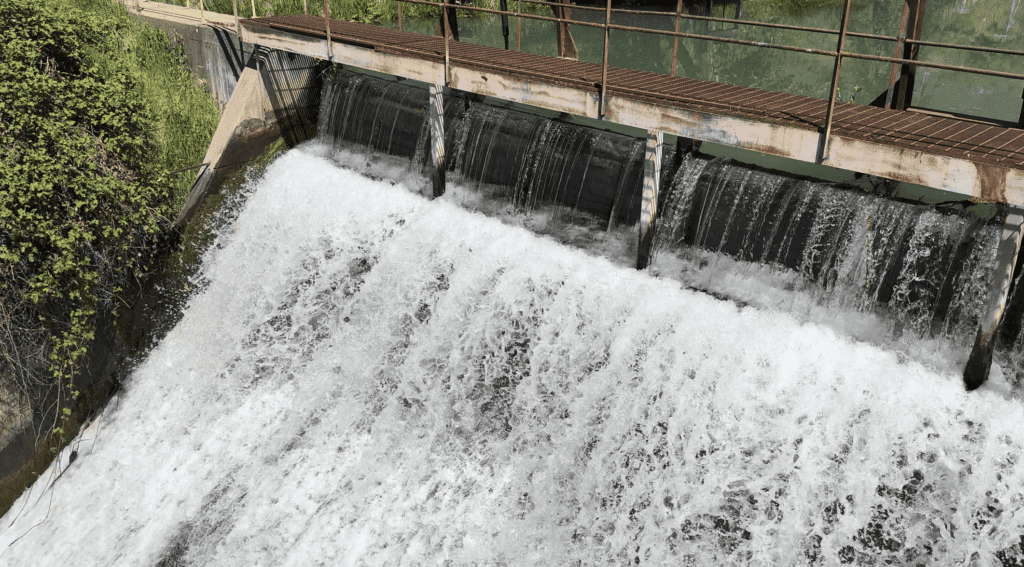
A longer growing season help keep workers
Extending the growing season beyond grapes helps keep the expert farm workers steadily employed.
“We plant starts in a greenhouse for the annual crops like the basil and the super savory. And we grow a lot of rosemary, although the last few winters have been hard on the crop.”
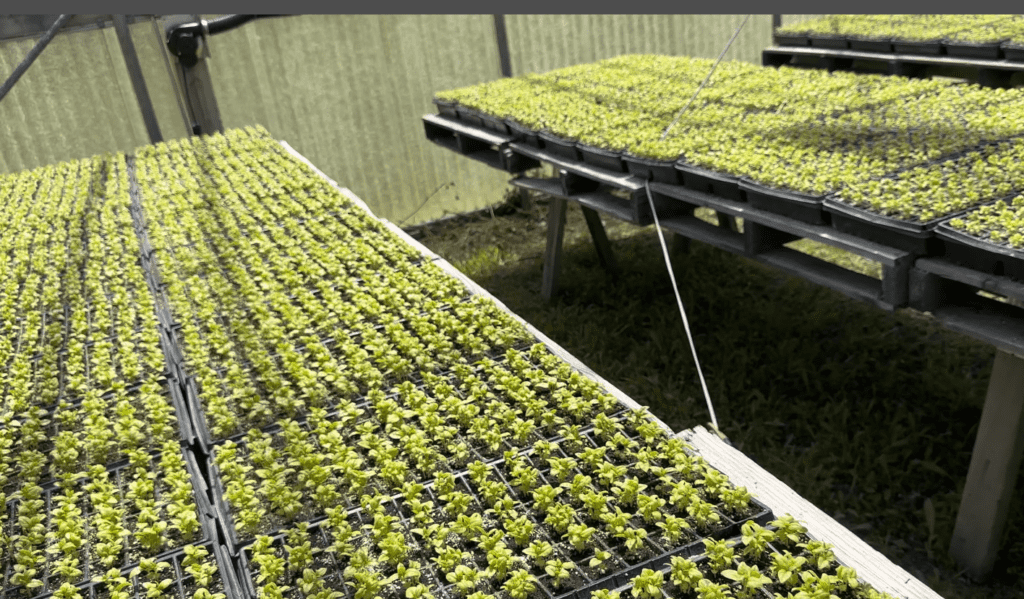
Then there are those garlic braids
McFadden is also known for his garlic braids and bay leaf wreaths, which he sells through his website and at Williams Sonoma stores.
“Then we go into the summer. We will go into suckering and leaf pulling in the vineyard. In late July, we’ll start making garlic braids. Then we’ll start getting ready for harvest, which usually lasts about 6 or 7 weeks. And then we go right into the bay leaf wreaths to the end of the year. That’s what keeps everybody here.”
Guinness McFadden’s journey as an organic farmer and wine grower is a testament to the resilience and dedication of those who work the land. His passion for organic farming practices, mentoring young winemakers, and commitment to preserving the environment through his hydroelectric power plant sets a remarkable example for others in the industry. McFadden’s legacy will continue to shape the vineyards and farms of Mendocino County for years to come, inspiring future generations of winemakers and farmers to prioritize organic farming practices.

